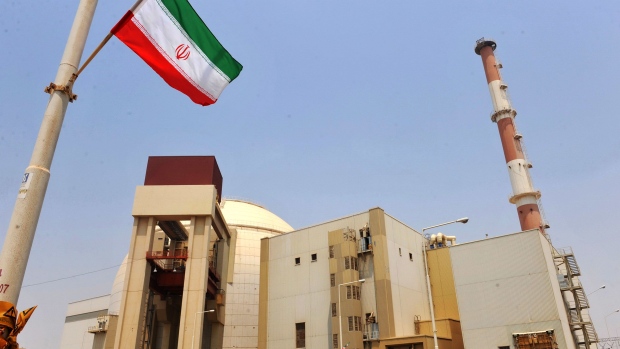Aug 16, 2022
Goldman Says Iran Nuclear Deal Is ‘Unlikely’ After Oil Tumbles
, Bloomberg News

(Bloomberg) -- A deal to revive a nuclear agreement between Iran, the EU and the US is unlikely to be struck in the near term, according to Goldman Sachs Group Inc., which said that even if a pact were agreed, additional oil wouldn’t flow until next year.
“Our view continues to be that a deal is still unlikely in the short term, with a stalemate mutually beneficial,” analysts including Callum Bruce said in an Aug. 16 note. Even with a breakthrough, there would likely be a “phased implementation,” with barrels unlikely to return until the start of 2023 at the earliest, they said.
Oil markets have been transfixed in recent days by the possibility that an agreement could be struck to save the Joint Comprehensive Plan of Action, a nuclear pact that was abandoned by former US President Donald Trump. Given that an accord could clear the way for Tehran to resume crude exports without US sanctions, global benchmark Brent closed on Tuesday at the lowest since February.
At present obstacles remain, especially regarding so-called continuity guarantees the US is unable and unwilling to provide, the analysts said. In addition, Iran has “weak incentives” to agree given it’s already exporting about 1 million barrels a day while also making progress toward medium-term nuclear goals, they said.
A return of Iranian supply would reduce the bank’s existing 2023 Brent forecast of $125 a barrel by $5 to $10, they said. Brent last traded at $92.49 a barrel.
©2022 Bloomberg L.P.





